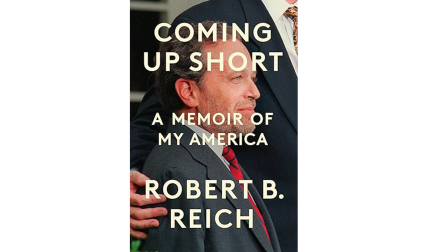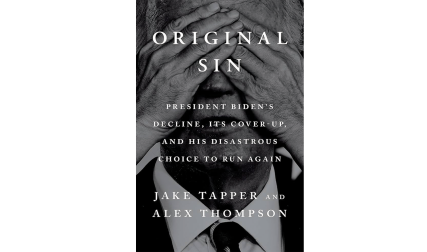John Kimmey ’44 tells the story of a Dartmouth junior recruited by an intelligence agency to write poems for coding and decoding messages during WW II in his novel, The Poet in the Code Room (CreateSpace).
Finance and real estate reporter Jane Hodges ’92 provides insight into whether in this economy one should be buying or renting a home and destroys the assumption that buying is always best, in Rent vs. Own (Chronicle Books).
Brothers Jeffrey O’Connell ’51, a law professor at the University of Virginia, and Thomas O’Connell ’50, a former president of Berkshire (Massachusetts) Community College, examine the successes and failures of university leadership, including Dartmouth’s John Sloan Dickey ’29, in Five 20th-Century College Presidents: From Butler to Bok (Plus Summers) (Carolina Academic Press).
Samuel Florman ’46, Th’46, the chairman of Kreisler Borg Florman General Construction Co., writes an engaging memoir about his rise to the top of an industry renowned for crime, corruption, and the chronic risk of financial catastrophe in Good Guys, Wiseguys, and Putting Up Buildings: A Life in Construction (Thomas Dunne Books).
E. Norman Veasey ’54, a lawyer and former chief justice of the Delaware Supreme Court, discusses the recent heightened expectations on ethics, integrity and other liability concerns facing corporate general counsel as coauthor of Indispensable Counsel: The Chief Legal Officer in the New Reality (Oxford University Press).
Historian George Liebmann ’60, who specializes in American and international diplomatic history, profiles the 50-year diplomat who served as U.S. ambassador to four countries and as the U.S. permanent representative to the UN in The Last American Diplomat: John D. Negroponte and the Changing Face of U.S. Diplomacy (I.B. Tauris).
Richard Babcock ’69, a former editor for New York Magazine and editor-in-chief of Chicago Magazine, explores a married couple’s strained relationship and the furry foe that stalks the cabin in which they seek reconciliation in the Kindle Single, Ah, Rat.
Howard Reiss ’73 draws on events from his life with a novel about an unusual mid-life crisis triggered by the discovery of an aunt who was mistreated for mental illness in A Family Institution (Reiss Krance Publishing).
Peter Dorsen ’66, M.D., a chemical dependency counselor and instructor of biomedicine, shares his personal struggle with bipolar disorder and self-medicating substance abuse in Crazy Doctor: Mixing Drugs and Mental Illness (Triple A Press).
Mark Connolly ’79, a former director of the N.H. Bureau of Securities Regulation and the recipient of the 2007 Securities Enforcement Award of the Year from the North American Securities Administrators Association, shares an inside look at New Hampshire’s largest Ponzi scheme in Cover-Up (White Whale Press).
Gregory Slayton ’81, a father of four and former ambassador to Bermuda, provides an inspirational and practical guide to fatherhood in Be a Better Dad Today: Ten Tools Every Father Needs (Regal).
Carole (Sonnenfeld) Geithner ’83, an assistant clinical professor of psychiatry and behavioral sciences at George Washington University School of Medicine, follows a 13-year-old girl coping with her mother’s death from cancer in the young-adult novel, If Only (Scholastic).
In his fourth novel, Say Nice Things about Detroit (W.W. Norton), Scott Lasser ’84 follows a recently divorced protagonist as he returns home to Detroit and attempts to make sense of the murder of his high school sweetheart.
Peter Converse ’89 tells of a chance encounter on a Hong Kong subway that grows into a meaningful relationship between a shy boy planning to drop out of school and a girl pregnant with her ex-boyfriend’s baby in his first novel, Subway Girl (HarperTeen).
Heidi Julavits ’90 follows an up-and-coming psychic as she tracks down an artist with connections to her mother, who committed suicide decades before, in the paranormal detective story The Vanishers (Doubleday), named an Amazon Best Book of the Month in March.
Psychologist and fitness coach Allison Belger ’91, co-owner of four gyms, shares her journey from childhood to the discovery of CrossFit training and its emphasis on camaraderie and community in The Power of Community: CrossFit and the Force of Human Connection (Victory Belt).
Sarah (Snip) Stroup ’00, an assistant professor of political science at Middlebury College, argues that domestic factors play a significant role in shaping the structures and activities of international nongovernmental organizations in Borders Among Activists: International NGOs in the United States, Britain, and France (Cornell University).
Business strategy consultant Mark Peterson ’91, Tu’95, shares practical advice on conserving capital and leveraging guerrilla tactics for small business owners seeking to become the next corporate giants in Guerillapreneur: Small Business Strategy for Davids Wanting to Defeat Goliaths (BookLogix).
Kari Loya ’93 shares 40 stories of his own experiences—from running to the bottom of the Grand Canyon to attempting to meet the elusive J.D. Salinger—in his collection, My Top 40 at 40: Making the First Half Count (XK Productions).
Rick Spier ’78 composed a novel memoir, The Legend of Shane the Piper (Moon Donkey Press), about his time as an undergraduate.
Meg Donohue ’00 follows the friendship of two girls from very different backgrounds as they go from the tribulations of high school to opening a cupcake shop together in her first novel, How to Eat a Cupcake (William Morrow).
Andrew Allport ’01, who has written for such journals as The Antioch Review, Denver Quarterly and Boston Review, explores loss through a personal, literary and historical lens in his debut poetry collection, The Body of Space in the Shape of the Human (New Issues Poetry & Prose).
Allen Fromherz ’02, an associate professor of Middle Eastern and Mediterranean history at Georgia State University who taught at Qatar University in 2007-08, offers the first scholarly history of the Gulf state published since 1979 with Qatar: A Modern History (Georgetown University Press).
Jordyn Paradis Hagar ’04, a licensed clinical social worker, draws on her spouse’s experiences with the medical training process as well as on her professional mental health background to offer advice on managing a healthy relationship with a significant other in “At Least You’ll Be Married to a Doctor”: Managing Your Intimate Relationship Through Medical School (Outskirts Press).
Journalist Kaitlin Bell Barnett ’05 chronicles the history of the first generation to come of age taking psychiatric medication, told through the stories of five young adults now in their 20s and 30s, in Dosed: The Medication Generation Grows Up (Beacon).
Sophia Khan ’06, an assistant with the human trafficking and modern slavery program at Harvard’s Kennedy School, introduces college students with a kitchen to affordable gourmet cooking as coauthor of Students Go Gourmet: Simple Gourmet for Every Day (Dailey Swan).



